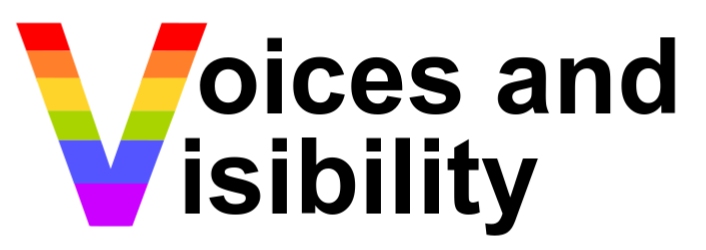Decriminalisation Of Homosexual Acts – Scotland
Decriminalisation of homosexual acts in Scotland
When were homosexual acts decriminalised in Scotland?
The Criminal Justice (Scotland) Act 1980 (Section 80) decriminalised homosexual acts in private between two men with consent, over the age of 21. It came into force on 1 February 1981. It brought Scottish law into line with the England and Wales Sexual Offences Act 1967.
Why had there been change in England and Wales?
The Home Office asked Sir John Wolfenden to form a committee to advise on the reform of laws around homosexuality. Wolfenden’s report in 1957 recommended that homosexual sex was a private matter and should be decriminalised. Ten years later the Labour Government turned the Wolfenden report recommendations into law.
Why was Scotland not included in the Sexual Offences Act 1967?
MPs questioned its relevance to Scotland. In England and Wales the focus was on homosexual acts in private. In Scotland sexual acts between men in private were rarely prosecuted. The law required both clear evidence and that prosecutions were considered in the public interest. In Scotland the law focused on men’s sexual lives outside the home – in parks, toilets, and tenement closes.
MPs in Westminster believed that homosexuality was not seen as a major social problem in Scotland. They were told that sex between men in private was not being actively prosecuted in Scotland. So they questioned why the law needed to change in Scotland. Some Lords and MPs believed that Scottish law for homosexual acts was superior to the law in England. Of course a law that is not used can still be a threat. Most Scottish gay and bisexual men still thought they would be prosecuted for private consensual sex. They knew most people thought of them as criminals.
Two men, James Adair and Willie Ross, had an influence on what happened in Scotland. Adair was one of four members from Scotland on the Wolfenden Committee. He was a former procurator fiscal of Glasgow and an elder in the Church of Scotland. He was the only person on the committee who was against decriminalisation and he wrote a separate report. This caused some discussion in Scottish newspapers. Adair said open homosexuality would spark public ‘disgust’, promote male prostitution and enable ‘perverts to practise sinning for the sake of sinning’. Willie Ross was the Secretary of State for Scotland from 1964-70 and again from 1974-76. He was also against decriminalisation in Scotland.
Who campaigned for decriminalisation in Scotland after 1967?
In 1969 the Scottish Minorities Group (SMG) was started. It was Scotland’s first homosexual law reform organisation. The name avoided the use of the word ‘homosexual’. It was a conservative organisation and wanted to ensure it was taken seriously. Later, in 1978 they were more confident and they changed the name to the Scottish Homosexual Rights Group (SHRG).
By 1971 SMG were preparing a Sexual Offences Bill to bring Scotland into line with England and Wales. The Church of Scotland and the Catholic Church provided them with rooms to meet and also with support. In public the Church’s views were often bleak and unforgiving. In private there were individuals in the churches who supported decriminalisation.
SMG and the Scottish National Council for Civil Liberties (SNCCL) started a campaign. They established good contacts with supportive MPs and peers. They worked with the Campaign for Homosexual Equality (CHE) in England and Northern Ireland Gay Rights Association (NIGRA). Progress was very very slow. In 1979 they told Gay News magazine there was little chance of Parliament acting in the near future.
How was decriminalisation finally achieved?
In April 1980 an employment tribunal decision was important. John Saunders, a handyman at a residential camp for schoolchildren in Scotland, was dismissed from his job. Having ‘homosexual tendencies’ was seen as a risk to children. His employers agreed his work was satisfactory. Saunders had no criminal record and had never made a sexual advance to children. An Employment Appeal Tribunal rejected his appeal for unfair dismissal. The reason for the rejection – that there were some people who believed homosexuals were a greater risk to children than heterosexuals. The decision was criticised by some politicians and national newspapers.
A few weeks later SHRG, the National Council for Civil Liberties, CHE and NIGRA spoke to a meeting of MPs at the House of Commons about employment protection. After London Pride on 28 June, trade union leaders, celebrities and politicians handed in a petition about the case to Downing Street. As a result, an all-party group of MPs put forward a new amendment to the Criminal Justice (Scotland) Bill. Scottish MP Robin Cook opened the debate on the Bill in July. He used the Saunders’ case to say homosexual law in Scotland needed reform. There could be no employment protection for men whose behaviour was criminalised.
To help the amendment succeed in the House of Commons, the age of consent was set at 21, even though Cook supported 18. The amendment passed in the Commons by 208 to 80. All 22 Scottish Conservative MPs voted against the amendment. The Scotsman newspaper said it was the most significant victory for the Scottish gay community in ten years. The Sun newspaper called it ‘McGays Charter’. After the House of Commons the bill went to the House of Lords.
In Scotland, a group called ‘Parent Concern’ sent letters to newspapers calling for protection for their children. Many quoted an article in Gay News, ‘MPs PASS ‘ORGY LAW”. Gay News had printed this because the proposed amendment for Scotland did not limit private sexual acts to only two men taking part or being present. (The two men limit was part of the 1967 Act for England and Wales). Campaigners against the reform met the Lord Advocate. He supported a new amendment to include the two men limit. The amendment was supported in the House of Lords to make sure the Bill was passed.
